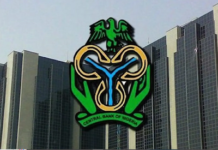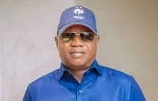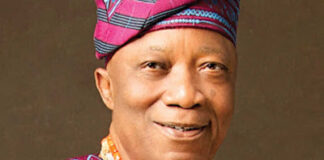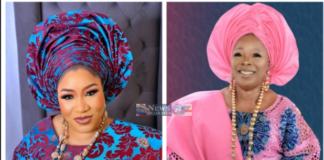OPINION
By Emmanuel Adesanya
Abubakar Malami, Nigeria’s Attorney General and Minister of Justice have taken the defined “flak” and “slips” of the President Muhammadu Buhari’s administration, it does not matter if these alleged infractions were for the common good of the citizens.
Former military president Ibrahim Babangida in a recent interview expressed the pains of most public officers in Nigeria; the public judge you only on the negative narratives spun out about you. It does not matter if the stories were from your adversaries, no matter what you say in defense, you are as guilty as charged in the court of public opinion.
During the May to September, 1787 Constitutional Convention debate in Philadelphia, United States of America on the choice of democracy was adopted as the preferred political system of the country, some of the leaders had argued that not every citizens can be entrusted with the choice of who should or can lead the , ostensibly on the premise that not all the citizens can say they know what they want.
By virtue of education, social statuses and exposure levels, citizens are most times limited in their understanding of what the functions of government are; nor can they rightly say, “this is what we want”, rather most citizens reason “this is what we THINK we want” whether rightly or wrongly, or whether it is injurious to them as individuals or hurtful to the next person near them, or the nation at large.
By construct, contrived or designed what is meat to one person could be poison to another. Emotions and sentiments have been elevated to the frontlines of our public space, and leaders therefore become endangered species.
If the sum aggregate of diverse public opinions will therefore serve as the Compass for public officers, then the new mathematics would be a fraction of the total viewpoints and ideas suggested or canvassed by the citizens or the vocal members of the public.
Leadership is not one course most people would pass excellently well. Hence, the need to do only that which the leaders “think” is right and in the best interests of the largest number of the citizens is the ultimate test of leadership.
Every generation of leaders have often come up with a fall guy; no matter what they do, once adversaries signpost them for opprobrium, good intentions and novel initiatives are sent on recess. Sadly, custodians of the law have come under heavy criticisms with no let.
Since 2011, Abubakar Malami, Nigeria’s Attorney General and Minister of Justice have taken the defined “flak” and “slips” of the President Muhammadu Buhari’s administration, it does not matter if these alleged infractions were for the common good of the citizens.
As the Chief Law officer of the federation, the entire legal systems are being discussed from such individual perspectives between “what is”, “what should be” as against what some ‘intellectuals’ “want it to be” or “what Malami said, refused to say, did not say or what he should have or contrived to have said”, with little attention on what he did or he is doing for the common good of the nation.
For the first time in the nation’s history, or rather in what appears to look like the late Murtala Ramat Muhammad’s era of conscious diplomacy, Abubakar Malami has elevated Nigeria’s foreign policy and diplomatic initiatives to protect the National interests of Nigeria.
This really would not have mattered though, because baring the handful of members of the Diplomatic Corps, how many Nigerians can speak to their country’s National Interests and or Foreign Policy objectives.
Capacity of Nations are measured in terms how courageous they can square up to other nations in advancing their own interests for the benefits of their citizens. No doubt, Malami has taken this some steps forward. Under him, he has successfully renegotiated Nigeria’s space in this all important department, using the only weapon he knows how to use best- the law or the legal system. In a daring demonstration of courage, he has used the international law to negotiate the repatriation of several funds stolen and stored abroad since the Abacha era back to the country, and this runs into billions of dollars. He did, undisputedly negotiated costs of arbitration on Investment disputes, some of which had dragged on for years, and these also made Nigeria richer by several billions of Naira.
Rather than being an agency of government spending money, Malami has used the Attorney General’s office to generate revenue and block leakages in federal government expenditures away from what obtained in the past.
Public opinions have refused to credit him with initiatives relating to the Covid-19 ban on Nigerians by the British Government as well as the diplomatic row with the United Arab Emirates on fights ban against the Air Peace. However unfair the Nigeria’s brand of politics befuddle these achievements, they remain what they, positive gains for a country that was in prostrate on the global sphere before his arrival.
*Emmanuel Adesanya is a public analyst on International Relations, writes from Ibadan.













